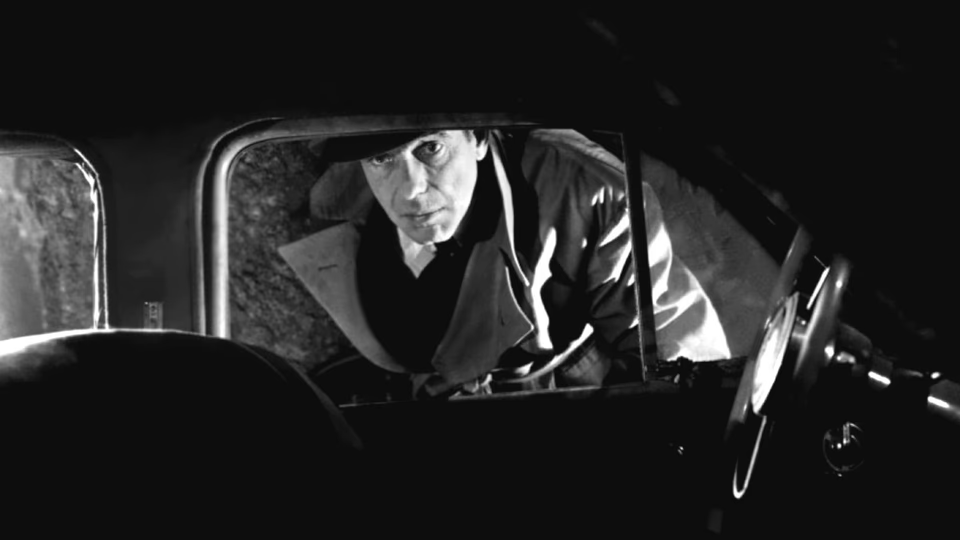Conflict

Humphrey Bogart plays an engineer trapped in a loveless marriage and carrying a secret torch for his wife’s sister. Seeing a way out, Bogart executes what he thinks is the perfect murder, but evidence soon mounts indicating his wife may still be alive. Spoilers follow.
The film wastes little time. In the opening scene, Bogart and his wife are dressing for their five-year anniversary party. Like a boxer, she peppers Bogart with verbal jabs. He pushes back, and she lands a wallop, confronting him with his attraction to her sister. He takes it on the chin, admitting it with neither pride nor shame, but with humility, and reaffirms his commitment to his wife. Then she delivers the knockout blow, all but laughing at him, reminding him she would never grant him a divorce and even if she did, her sister would never have him.
A brush with death prompts Bogart to action. He constructs the murder with the same layered, meticulous approach an engineer might apply to a bridge or building. He begins feigning reconciliation with his wife, a red flag she chalks up to his recent injuries, saying “It’s funny how virtuous a man can be when he’s helpless.”
After the murder, Bogart’s conscience weighs on him, as foreshadowed by psychologist friend-of-the-family Dr. Hamilton, played by Sydney Greenstreet. The good doctor plays detective and catches a slip by Bogart that reveals his guilt.
From here the film pivots to gothic chiller. Long shadows and dark rooms dominate as Bogart’s nerves fray. Witness report seeing his wife. Bogart spots her jewelry at a pawnbroker, only to find it gone when he returns with a detective. Worse still, the broker doesn’t remember the jewelry and there’s no entry in the shop’s ledger.
Driven to near madness, Bogart returns to the crime scene, where the police and Greenstreet are waiting. An exposition dump explains how Greenstreet orchestrated everything to prompt Bogart to implicate himself. Tidy enough, but the logistics fall apart at the slightest scrutiny.
And as for Greenstreet, he acquits himself well as the hero detective. One could imagine an entire series with him in the role, solving crimes with a psychological twist. That said, I couldn’t help but imagine Claude Rains in the part.